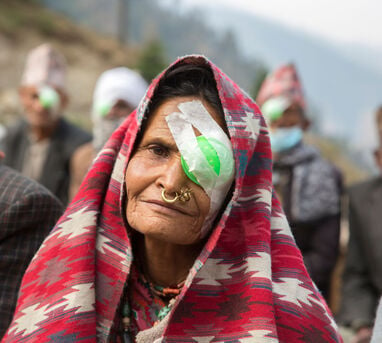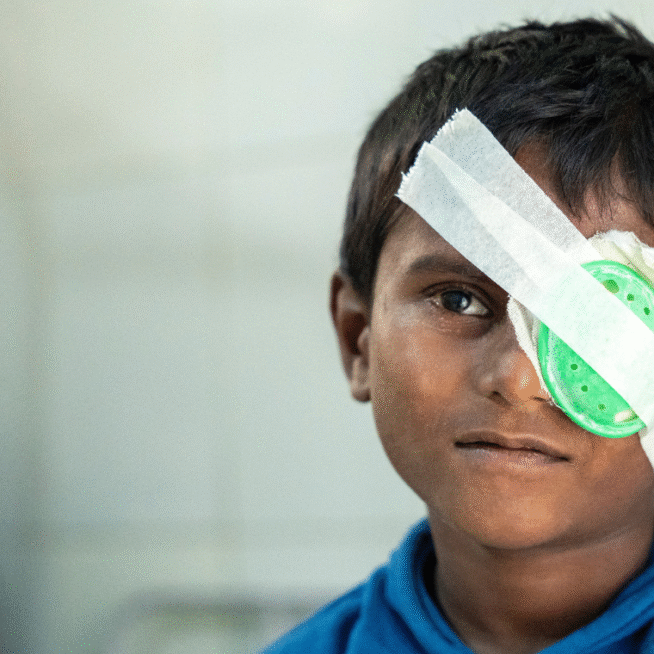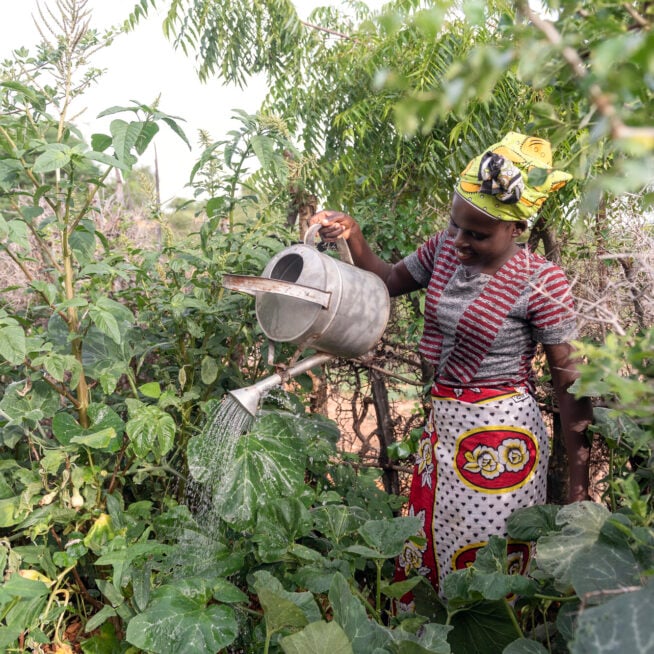I recently had the pleasure of visiting our Actions for Change project in Bangladesh and seeing the great work by our Organisation of People with Disabilities (OPD) partner, National Grassroots Disability Organisation (NGDO), to build resilience for people with disabilities affected by disasters and climate change. Under the Actions for Change programme, which is also being implemented in Kenya and Nepal, we are working with national OPDs who have designed and are implementing a project to address the needs that are most important to people with disabilities in that country.
Learning from our Partners in Bangladesh
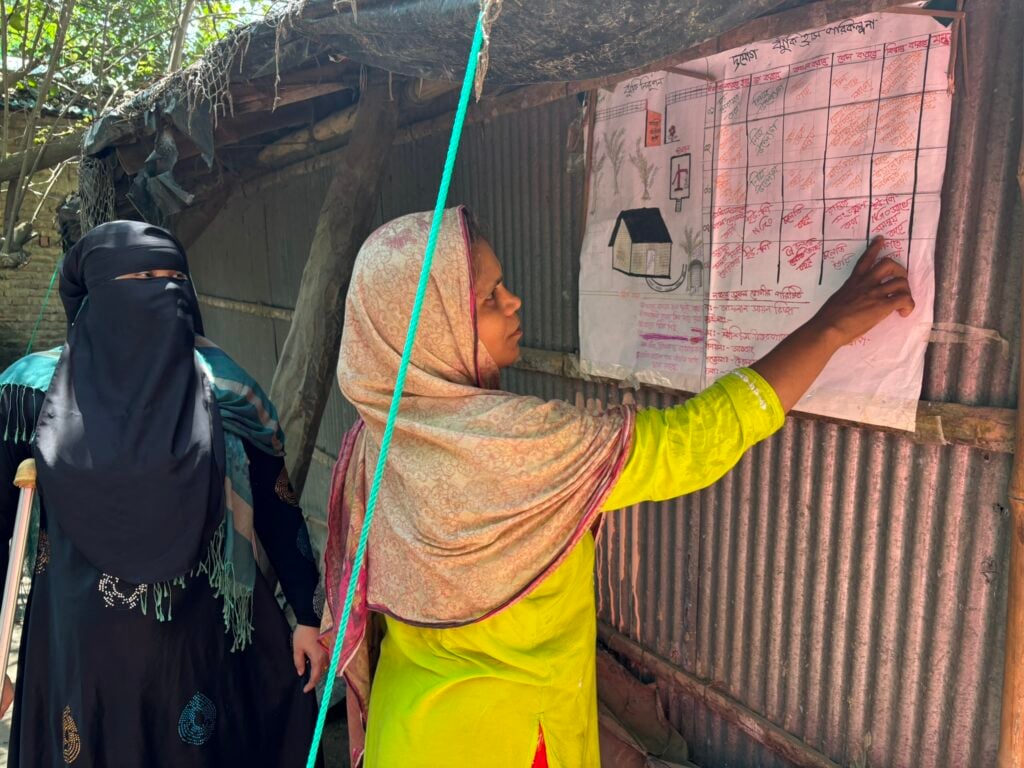
The project works in Teknaf, a sub-district of Cox’s Bazar in the south of Bangladesh. This coastal region is extremely vulnerable to disasters like cyclones and flooding, which are becoming all the more frequent as a result of climate change. People with disabilities in Teknaf are among the most vulnerable to the impacts of climate-related disasters, as they tend to be poorer, live in more exposed areas, and have little to fall back on if their property or livelihoods are damaged. They are more at risk of injury or death during a disaster, as evacuation routes and centres are often inaccessible, or they don’t receive warnings in an accessible way.
Being an OPD network, NGDO is well connected to the local disability community and has worked to understand their needs as well as their strengths. They identified 25 people with disabilities with leadership potential and trained them as volunteer Community Facilitators. These individuals are responsible for working with people with disabilities in their communities and helping them to develop household-level risk reduction action plans.
Jasmin, 26, is one of these Community Facilitators. Jasmin showed me round some of the households she has worked with in Shahpori, in the South of Teknaf, close to the Myanmar border. We met Rashida, mother to 12-year-old Riza, who is deaf. Rashida showed me the family’s household risk reduction plan. This starts with a mapping of all the risks and hazards around the house. They then identified an action to take for each risk to prepare them for the effects of cyclones and floods and make the house more accessible. They have already completed some of these with Jasmin’s support, including tethering the roof to the ground using rope, which will make it more secure in the event of heavy rain and wind. They have also used clay to raise the entrance of the house, to prevent floodwater from entering. As a cyclone was forecast the following week, Rashida had already begun preparing stocks of dry foods like puffed rice and sugar, as well as candles and medicine in case her family was trapped in the house or the cyclone shelter for several days.
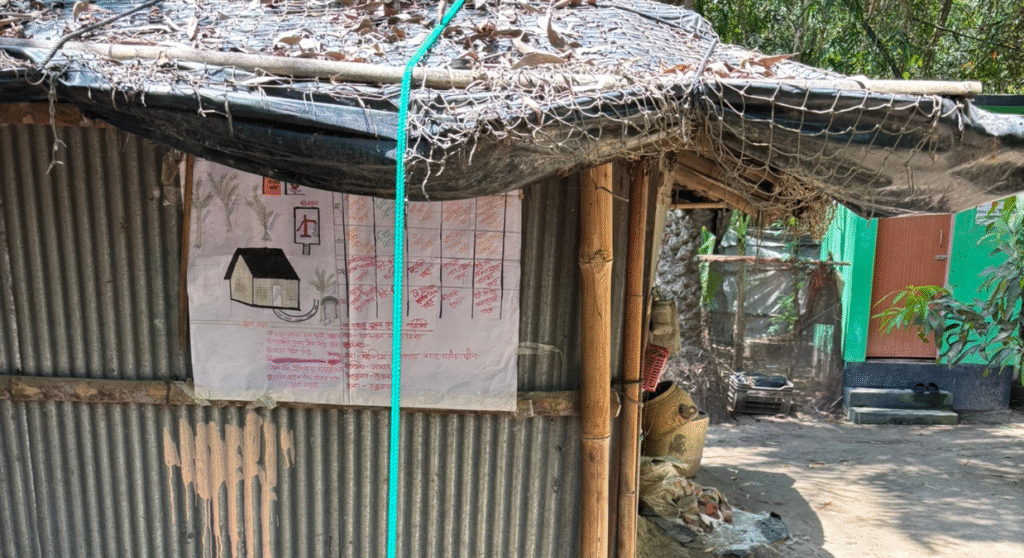
Riza, who participated actively in mapping risks and planning actions for her household, told me that she feels very unsafe when there is a cyclone. The family would like to do more, such as raising the floor of the house, but they cannot afford to do this now. We visited several other households that are taking steps, such as Mustafa Khatoun and her 10 children, of whom six are deaf, and Ayub Khan, who is working on raising the floor of his family’s house. In many cases, NGDO’s work has been able to support the families further – for example, NGDO successfully advocated for inclusion of these households in a government-run cash for work programme and has secured additional funding through Global Green Grants to install accessible water pumps for their houses. Following the recent flooding due to the monsoon, the Community Facilitators also helped 20 affected people to access government financial assistance to repair damage to their homes.
While making changes can be difficult for these families, one of the support mechanisms that the project has put in place is establishing Village Savings and Loans Associations (VSLAs). These VSLAs are made up of people with disabilities from the local community. I visited a VSLA meeting in a village called Habibchora, where the 15 group members meet weekly, each time contributing 30 BDT (about 20p) each to the savings pot. Every month, members can then apply for a loan. Habibchora VSLA has two pots – one for emergency funds and one for savings and investments. Members can use emergency funds to prepare for or help them recover after a disaster, for example, fixing damage to their house. They will use the savings pot for investments and microenterprise, with a focus on climate-adaptive community development – for example, planting fruit trees. The group is keen to also invest in improving the accessibility of their facilities, such as fixing pathways and installing a water pump within the community.
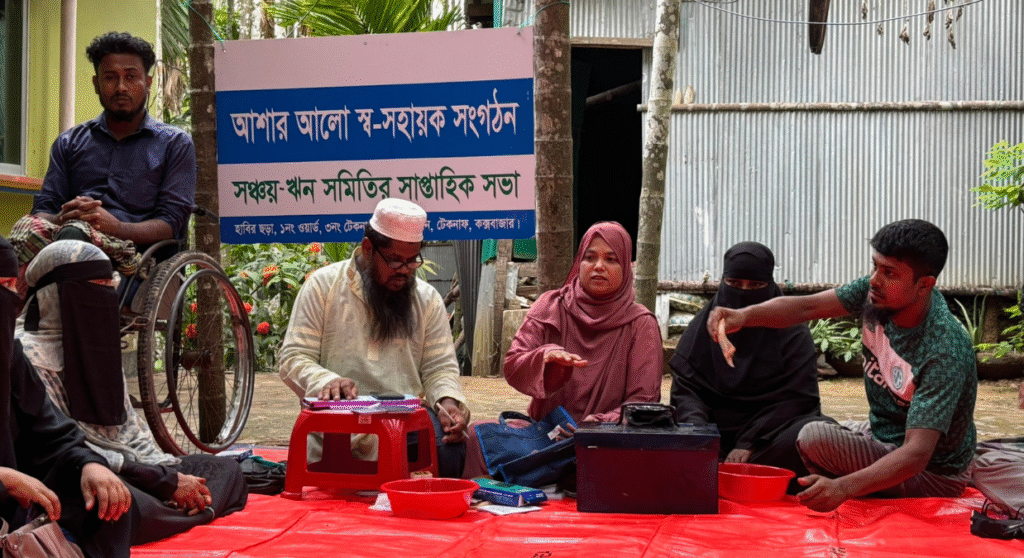
I also learned about the role that Community Facilitators like Jasmin have played in carrying out primary data collection for the project’s research, including a district-level Vulnerability and Risk Analysis, which provides important data for humanitarian actors in Teknaf. The Community Facilitators were trained on Kobo Collect, an open-source data collection app using a phone. They used this tool to collect disability and socio-economic data for over 600 households of people with disabilities, while also working with the same 600 households on their risk reduction mapping and action plans. After this, NGDO worked with the local government Disaster Planning Committee to ensure the findings were adequately reflected in planning activities and budget allocations. As part of this research, the Community Facilitators found several people with disabilities who did not have official disability registration cards, which entitle them to state-funded benefits. Coordinating closely with the Department of Social Services, the Community Facilitators and NGDO have so far helped 17 people to obtain their disability ID card, with more applications still in process.
One of the most powerful takeaways I had at the end of my visit was the need to recognise the capacity of people with disabilities themselves to know what changes need to happen in their community, and empower them with the resources to do so – be this training to build specific skills and knowledge, money for transportation to advocate at a local government meeting, or hardware like a cashbox and ledger book to run a VSLA. As one of the Community Facilitators told me: “previously nobody recognised what I had to say. BUT NGDO found me and trained me, and now I share my knowledge with others.”
